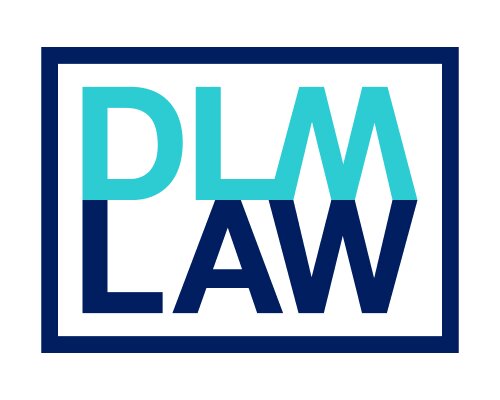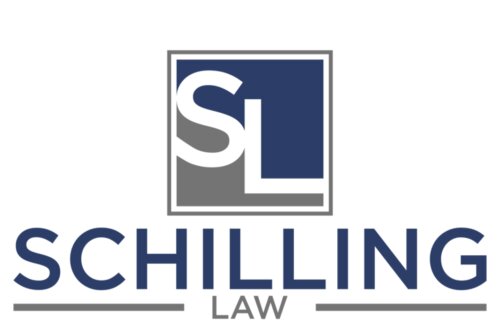Best Ethics and Professional Responsibility Lawyers in Kansas City
Share your needs with us, get contacted by law firms.
Free. Takes 2 min.
List of the best lawyers in Kansas City, United States
About Ethics and Professional Responsibility Law in Kansas City, United States
Ethics and Professional Responsibility law in Kansas City is concerned with the standards and regulations that govern professional conduct across various professions. This includes ensuring that attorneys, medical practitioners, accountants, and other professionals adhere to ethical guidelines and maintain a standard of behavior expected within their professions. The Kansas City Bar Association and various other professional organizations play crucial roles in enforcing these standards and holding professionals accountable for their conduct. Ethics in professional practice ensures trust and integrity in professional services, a vital component of Kansas City's legal and professional landscape.
Why You May Need a Lawyer
There are several situations where individuals or businesses may require legal assistance in Ethics and Professional Responsibility. Some common scenarios include:
- Facing disciplinary actions or investigations by a professional regulatory body.
- Accusations of professional misconduct or malpractice.
- Need for advice on compliance with professional standards and ethical guidelines.
- Representation in hearings or appeals regarding professional conduct.
- Guidance on conflict of interest situations.
- Advice on maintaining client confidentiality and data protection.
- Drafting and reviewing professional contracts with ethical implications.
Having a qualified lawyer can help navigate these complex situations, ensuring compliance with ethical standards and defending against any unjust allegations.
Local Laws Overview
Kansas City follows both state and federal regulations concerning ethics and professional responsibility, with additional oversight provided by local professional boards. Key aspects include:
- The Kansas Rules of Professional Conduct, which outline responsibilities and ethical behavior for lawyers.
- State laws governing medical practice, emphasizing patient safety, and ethical treatment.
- Financial regulations that mandate ethical conduct for accountants and financial advisers.
- Guidelines provided by professional associations such as the American Bar Association and the Kansas Board of Accountancy for ethical practices within their respective fields.
- Local ordinances that may impose additional ethical requirements for specific industries or roles.
Frequently Asked Questions
What constitutes professional misconduct in Kansas City?
Professional misconduct involves breaches of the standards or ethical codes governing a profession, such as dishonesty, conflict of interest, or breach of confidentiality.
How do I file a complaint against a professional in Kansas City?
Complaints can usually be filed with the relevant professional licensing board or association. They often have specific procedures and forms for submitting a complaint.
Can a lawyer help with a disciplinary hearing?
Yes, a lawyer can offer invaluable assistance in preparing for a disciplinary hearing, advising on defense strategies, and representing you during proceedings.
Will I need to appear in court for a professional responsibility case?
Not all cases require a court appearance. Many professional responsibility matters are handled internally by licensing boards or through administrative hearings.
Are ethical standards the same for all professions?
No, while there are common principles like honesty and integrity, each profession has specific ethical standards tailored to its practices and regulations.
What happens if I violate professional ethics unknowingly?
Ignorance of the ethical standards is generally not a defense in professional conduct cases. It may affect the severity of the consequences, but accountability is still required.
How long do I have to file a complaint in Kansas City?
The time limit, or statute of limitations, for filing a complaint can vary by profession and the nature of the misconduct. It’s crucial to act promptly and seek legal advice.
What should I do if I am accused of professional misconduct?
Contact a lawyer specializing in professional ethics immediately. They can guide you through the process, advise on the next steps, and help prepare your defense.
Can I appeal a decision made by a professional conduct board?
Yes, if you disagree with a decision, you typically have the right to appeal. A lawyer can help you understand the grounds for appeal and assist with the process.
Are there trainings or courses on professional ethics available in Kansas City?
Yes, many professional bodies and educational institutions offer courses and seminars on ethics tailored to different professions. Continuing education in ethics is often a requirement for maintaining licensure.
Additional Resources
For further assistance, consider these resources and organizations:
- Kansas City Bar Association
- Kansas Board of Accountancy
- Kansas State Board of Healing Arts
- The American Bar Association’s Center for Professional Responsibility
- Missouri Office of Chief Disciplinary Counsel
- Local law libraries and university legal clinics
Next Steps
If you believe you need legal assistance in the area of Ethics and Professional Responsibility:
- Consider reaching out to a specialized attorney with experience in your profession.
- Gather your documents and any communications relevant to your case or concern.
- Schedule a consultation to discuss your situation, get professional advice, and understand your legal standing.
- Explore mediation or alternative dispute resolution if appropriate, to potentially resolve issues amicably.
- Stay informed about changes in ethics and professional responsibility laws pertinent to your profession.
Lawzana helps you find the best lawyers and law firms in Kansas City through a curated and pre-screened list of qualified legal professionals. Our platform offers rankings and detailed profiles of attorneys and law firms, allowing you to compare based on practice areas, including Ethics and Professional Responsibility, experience, and client feedback.
Each profile includes a description of the firm's areas of practice, client reviews, team members and partners, year of establishment, spoken languages, office locations, contact information, social media presence, and any published articles or resources. Most firms on our platform speak English and are experienced in both local and international legal matters.
Get a quote from top-rated law firms in Kansas City, United States — quickly, securely, and without unnecessary hassle.
Disclaimer:
The information provided on this page is for general informational purposes only and does not constitute legal advice. While we strive to ensure the accuracy and relevance of the content, legal information may change over time, and interpretations of the law can vary. You should always consult with a qualified legal professional for advice specific to your situation.
We disclaim all liability for actions taken or not taken based on the content of this page. If you believe any information is incorrect or outdated, please contact us, and we will review and update it where appropriate.











